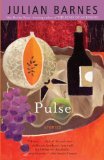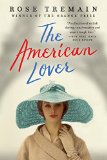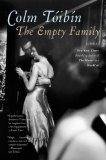Summary | Excerpt | Reading Guide | Reviews | Beyond the book | Read-Alikes | Genres & Themes | Author Bio

Stories
by Julian BarnesThe first time I picked up a book by Julian Barnes, it was one of those magical moments in an independent bookstore... The unassuming jacket illustration caught my eye so I crossed the creaky wooden floor to explore its pages. And that, as they say, was the beginning of a beautiful friendship. I was instantly drawn to how he illustrates the near-invisible nuances of human interaction and his keen understanding of how people communicate differently than one another. And in this collection of fourteen short stories entitled Pulse, Julian Barnes continues to capture the subtleties of what brings us together and what keeps us isolated.
Using a close third person point-of-view, and with a quality reminiscent of Raymond Carver's "What We Talk About When We Talk About Love," Barnes is brilliant at showing readers - through minor gestures and realistic dialogue - that his characters are irritated, uncomfortable, or painfully oblivious. For example in the story "Trespass":
Lynn lit a Silk Cut, as she did at the end of every walk. She didn't smoke much, and he didn't really mind, even if he thought it was a pretty stupid habit. Just when she'd done her cardiovascular system a power of good... Still he knew from being a teacher that there were times you had to confront, and times when you took a less direct route.
"We could go up again after Christmas In the New Year." Yes, he could get her the fleece as a present.
She looked at him and took a deep puff on her cigarette.
"If the weather got cold enough, that is. For the icicles."
"Geoff," she said. "You're on my space."
"I just-"
"You're on my space."
"Yes, Miss Duke of Devonshire."
But she didn't think that was funny, and they drove home mainly in silence. Perhaps he'd walked her too hard.
Throughout the book, in interactions like these, Barnes finds humor in miscommunication, and provides readers with subtle but genuinely funny moments. Across the board, his characters are multi-dimensional people - quirky, lovable, selfish, agressive, and innocent all at once - which makes them that much more enjoyable. In another example, my personal favorite, entitled "Gardeners' World," he writes:
They had reached the stage, eight years into the relationship, when they had started giving each other useful presents, ones that confirmed their joint project in life rather than expressed their feelings. As they unwrapped sets of coat hangers, store jars, an olive stoner or an electric pencil sharpener, they would say, "Just what I needed," and mean it.... One wedding anniversary, he'd given her a card that read, "I have cleaned all your shoes" - and he had...
The personalities of his characters are like puzzle pieces that sometimes come together to form a whole, and other times - tragically or laughably - do not. In four interspersed stories - all entitled "At Phil & Joanna's" (parts 1-4, respectively) - Barnes invites readers to eavesdrop on a series of dinner parties among friends and partake of their erudite, playful, and drunken banter. Though they are worth reading, I found that these stories made me feel isolated and left out, as if I hadn't actually been invited to have a glass of wine and join the party, but was being told about it afterwards. Either way, his ability to draw out these emotions in his readers is remarkable.
Overall, I think Julian Barnes's writing is slightly better lent to longer works (i.e. novels) because it provides him with even more space to develop his characters and show the evolution of their personalities - something at which he is so gifted. But even so, I enjoyed Pulse to the utmost degree, and I recommend it to anyone who is looking for a subtle, character-driven, and elegantly crafted collection of stories.
![]() This review was originally published in The BookBrowse Review in August 2011, and has been updated for the
March 2012 edition.
Click here to go to this issue.
This review was originally published in The BookBrowse Review in August 2011, and has been updated for the
March 2012 edition.
Click here to go to this issue.

If you liked Pulse, try these:

by Rose Tremain
Published 2016
Rose Tremain awakens the senses in this magnificent and diverse collection of short stories.

by Colm Toibin
Published 2012
From the internationally celebrated author of Brooklyn and The Master, and winner of the International IMPAC Dublin Literary Award, comes a stunning new book of fiction.
Censorship, like charity, should begin at home: but unlike charity, it should end there.
Click Here to find out who said this, as well as discovering other famous literary quotes!
Your guide toexceptional books
BookBrowse seeks out and recommends the best in contemporary fiction and nonfiction—books that not only engage and entertain but also deepen our understanding of ourselves and the world around us.